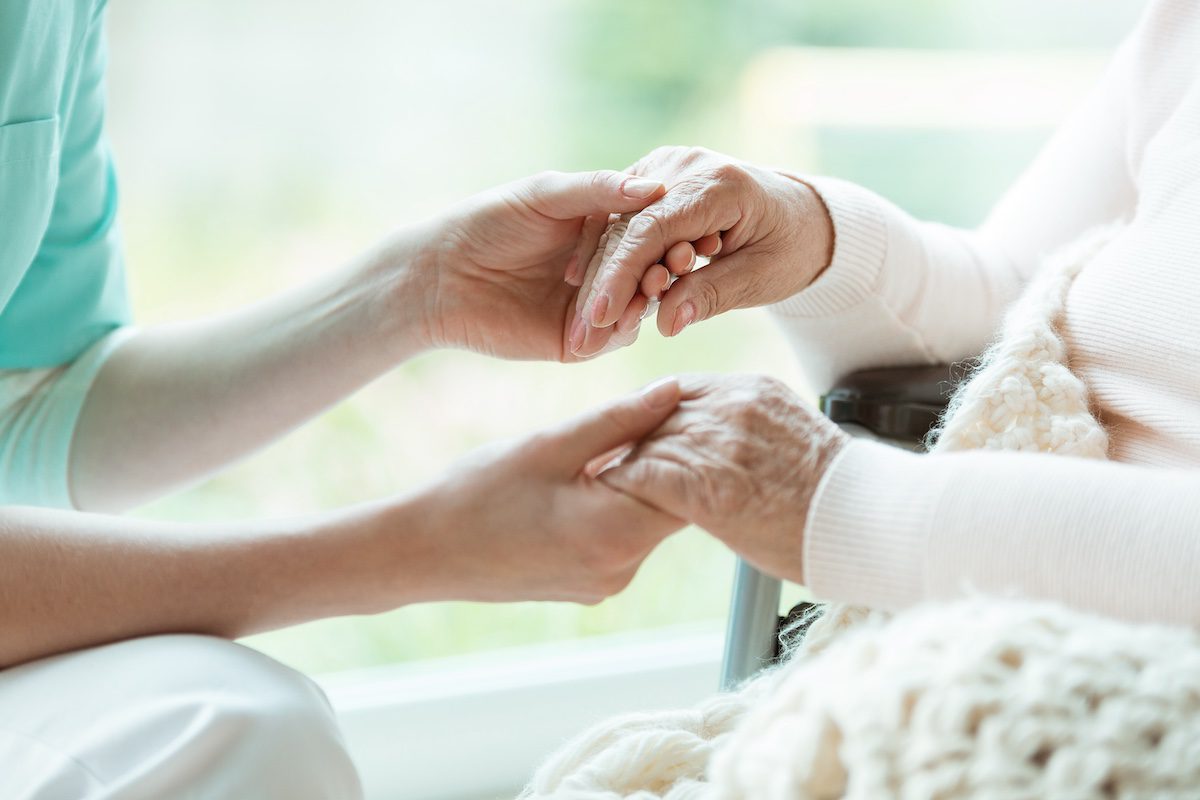Hospice care provides compassionate support for individuals with terminal illnesses, focusing on comfort, dignity, and quality of life in the final stages.
For family members and caregivers, understanding what to expect during the final days can help ease anxiety, provide clarity, and ensure that your loved one experiences peace and comfort.
Understanding the Final Stage of Life
The final days of life are a natural part of the dying process, and hospice care teams are trained to guide families through this transition.
During this stage, physical changes often become more pronounced, including decreased appetite and fluid intake, increased fatigue, and altered consciousness. Many patients may sleep more often or experience periods of confusion or restlessness.
It’s important to remember that these changes are normal and part of the body’s natural progression toward the end of life.
Common Physical Signs
Recognizing the physical signs that occur in the final days can help caregivers respond appropriately and provide reassurance to themselves and their loved ones.
Some common changes include:
- Decreased Appetite and Thirst: Seniors may eat or drink less as the body naturally slows down. This is a normal part of the process, and forcing food or fluids can cause discomfort.
- Changes in Breathing: Breathing may become irregular, with periods of rapid breathing followed by pauses. Hospice staff can provide techniques to ease discomfort and support respiratory comfort.
- Increased Fatigue and Sleep: Many patients spend more time resting or sleeping. Caregivers should prioritize creating a calm, restful environment.
- Changes in Skin and Circulation: Coolness in the hands, feet, or limbs, as well as changes in skin color, can occur. Gentle touch, blankets, and repositioning can help maintain comfort.
- Altered Consciousness: Patients may experience confusion, restlessness, or periods of unresponsiveness. These are natural parts of the dying process.
Emotional and Spiritual Needs
While physical care is critical, hospice care also addresses emotional, spiritual, and psychosocial needs. Patients may reflect on their lives, relationships, and unresolved matters.
Providing a supportive presence, listening, or offering spiritual resources such as clergy, counselors, or meditation can help ease emotional distress.
Families can also engage in meaningful conversations, share memories, or simply sit quietly with their loved one, providing reassurance and comfort.
Supporting Comfort Through Pain and Symptom Management
One of the primary goals of hospice care is maintaining comfort through effective pain and symptom management. Hospice teams work closely with patients and families to tailor medications, therapies, and interventions based on individual needs.
Pain, shortness of breath, anxiety, or restlessness can often be managed with medication, positioning, or relaxation techniques. Always communicate with the hospice nurse or physician about any observed discomfort to ensure timely and appropriate care.
Creating a Peaceful Environment
A calm and familiar environment can greatly enhance a patient’s comfort.
Here are some practical tips for creating a supportive atmosphere:
- Quiet Spaces: Reduce noise and distractions to allow for rest and reflection.
- Lighting: Soft, natural lighting or dimmed lamps can create a soothing environment.
- Personal Items: Familiar objects, photographs, or music can provide comfort and reassurance.
- Temperature Control: Keep the room at a comfortable temperature, providing blankets or fans as needed.
- Scent and Aromatherapy: Pleasant, non-irritating scents can create a calming atmosphere.
Communication With Your Loved One
Even in the final days, communication remains essential. Speak gently, maintain eye contact, and offer reassurance. Patients may not always respond verbally, but they can often sense presence and care.
Listening attentively and being present without the need for constant conversation can be profoundly comforting. Let your loved one know they are loved, valued, and supported.
Caring for the Caregiver
Caring for someone in their final days can be physically and emotionally exhausting. Caregivers should prioritize their own well-being to continue providing effective support.
This includes taking breaks, accepting help from others, maintaining hydration and nutrition, and seeking emotional support from friends, family, or hospice counseling services.
Remember, caregiver self-care is not selfish – it ensures that you can continue to provide compassionate care to your loved one.
Understanding the Role of Hospice Staff
Hospice care teams are invaluable resources during this time. They provide round-the-clock support, including:
- Nursing Care: Monitoring symptoms, managing medications, and providing guidance on daily care.
- Social Work: Offering emotional support, counseling, and assistance with practical matters such as advance directives.
- Spiritual Support: Chaplains or spiritual counselors address existential questions, rituals, and personal beliefs.
- Volunteer Assistance: Volunteers can provide companionship, respite for family caregivers, or practical help with daily tasks.
Preparing for the Moment of Passing
While no one can predict the exact timing of death, hospice staff can help families understand what to expect. Physical signs such as irregular breathing, mottled skin, and decreased responsiveness often precede death.
Families should focus on creating a peaceful environment, offering comfort measures, and staying present with their loved one. Being informed about what to expect can reduce anxiety and allow caregivers to focus on meaningful presence rather than fear or uncertainty.
After the Passing
Hospice care continues to support families even after death. Bereavement services are available to help loved ones navigate grief, honor the deceased, and find healing.
Hospice teams can provide guidance on paperwork, funeral arrangements, and coping strategies during the initial stages of loss. Remember that grieving is a natural process, and accessing support early can ease the emotional burden.
Key Takeaways for Supporting Loved Ones in Their Final Days
- Prioritize Comfort: Focus on physical, emotional, and spiritual comfort through symptom management, presence, and reassurance.
- Communicate with Compassion: Speak gently, offer reassurance, and listen attentively, even if your loved one cannot respond.
- Create a Peaceful Environment: Minimize noise, control lighting and temperature, and surround the patient with familiar, comforting items.
- Rely on Hospice Professionals: Collaborate with the hospice team for guidance, symptom management, and emotional support.
- Practice Self-Care: Take breaks, accept help, and seek counseling or support groups to maintain your well-being.
- Prepare Emotionally and Practically: Understand the signs of the final stage and know what resources are available to support both patient and family.
Final Thoughts
The final days of life in hospice care are a time for compassion, presence, and dignity. By understanding what to expect and utilizing available resources, families can support their loved ones while preserving comfort and quality of life.
Hospice care provides comprehensive support, ensuring that patients are pain-free, emotionally supported, and spiritually cared for. For family caregivers, maintaining self-care and accessing hospice resources allows for meaningful connection and compassionate care during this deeply significant time.
Remember, being present, offering reassurance, and prioritizing comfort are the greatest gifts you can provide to your loved one in their final days.



